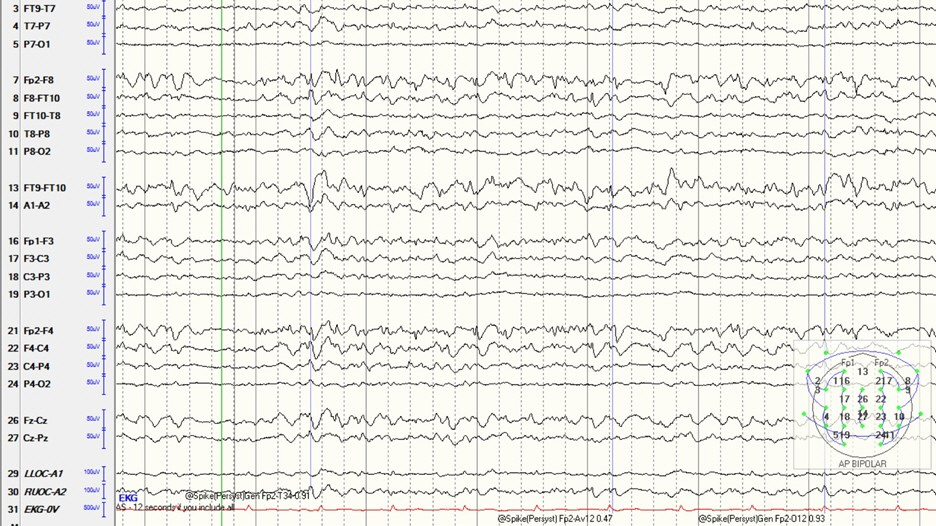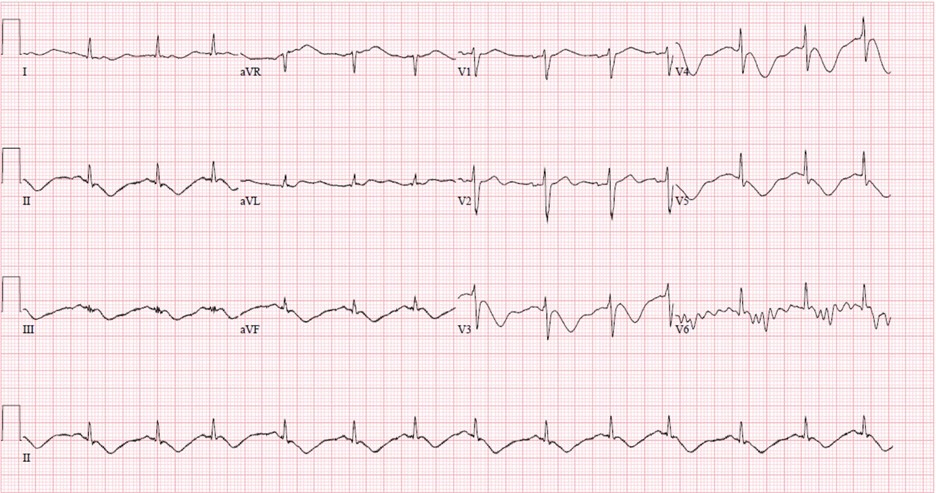J Neurocrit Care.
2022 Dec;15(2):122-125. 10.18700/jnc.220071.
Management of propofol-related infusion syndrome and discussion of POLG mitochondrial mutation: a case report
- Affiliations
-
- 1Division of Neurocritical Care, Department of Neurology, UT Southwestern Medical Center, Dallas, TX, USA
- KMID: 2538769
- DOI: http://doi.org/10.18700/jnc.220071
Abstract
- Background
Propofol-related infusion syndrome (PRIS) is a known complication of long-term propofol infusion. Providers should be aware of PRIS risk, as early recognition is key to avoiding mortality, which can range from 30% to 60%. The underlying mechanism of PRIS is unknown, but some studies suggest that underlying mitochondrial dysfunction may predispose patients to developing PRIS.
Case Report
We present a case of refractory adult-onset epilepsy that was challenging due to a paradoxical response to propofol with worsening brief ictal/interictal rhythmic discharges and complicated by development of PRIS. We aimed to discuss the clinical presentations of PRIS, along with a review of the mitochondrial POLG mutation found in our patient, which has also been described in other case reports of refractory adult-onset epilepsy.
Conclusions
We discuss the treatment strategy utilized in hopes of raising awareness of the risks in managing patients with epilepsy who have a potential underlying mitochondrial disorder.
Figure
Reference
-
1. Diedrich DA, Brown DR. Analytic reviews: propofol infusion syndrome in the ICU. J Intensive Care Med. 2011; 26:59–72.
Article2. Savard M, Dupré N, Turgeon AF, Desbiens R, Langevin S, Brunet D. Propofol-related infusion syndrome heralding a mitochondrial disease: case report. Neurology. 2013; 81:770–1.3. Whittaker RG, Devine HE, Gorman GS, Schaefer AM, Horvath R, Ng Y, et al. Epilepsy in adults with mitochondrial disease: a cohort study. Ann Neurol. 2015; 78:949–57.
Article4. Mayo Clinic Laboratories. Combined mitochondrial analysis [Internet]. Bethesda, MD: National Library of Medicine;2022. [cited 2022 Nov 1]. Available from: https://www.ncbi.nlm.nih.gov/gtr/tests/593320.1/.5. Wolf A, Weir P, Segar P, Stone J, Shield J. Impaired fatty acid oxidation in propofol infusion syndrome. Lancet. 2001; 357:606–7.
Article6. Stumpf JD, Saneto RP, Copeland WC. Clinical and molecular features of POLG-related mitochondrial disease. Cold Spring Harb Perspect Biol. 2013; 5:a011395.7. Anagnostou ME, Ng YS, Taylor RW, McFarland R. Epilepsy due to mutations in the mitochondrial polymerase gamma (POLG) gene: a clinical and molecular genetic review. Epilepsia. 2016; 57:1531–45.
Article
- Full Text Links
- Actions
-
Cited
- CITED
-
- Close
- Share
- Similar articles
-
- Experience of Suspected Propofol Infusion Syndrome in a Status Epilepticus Patient: A case report
- Dystonia Responsive to Dopamine: POLG Mutations Should Be Considered If Sensory Neuropathy Is Present
- Propofol Infusion Syndrome in a Patient with Epilepsia Partialis Continua
- Propofol-Related Infusion Syndrome in an Adult Patient Using Propofol Coma Therapy to Control Intracranial Pressure
- Successful treatment of propofol-related infusion syndrome in critically ill patient receiving low-dose propofol infusion: a case report



